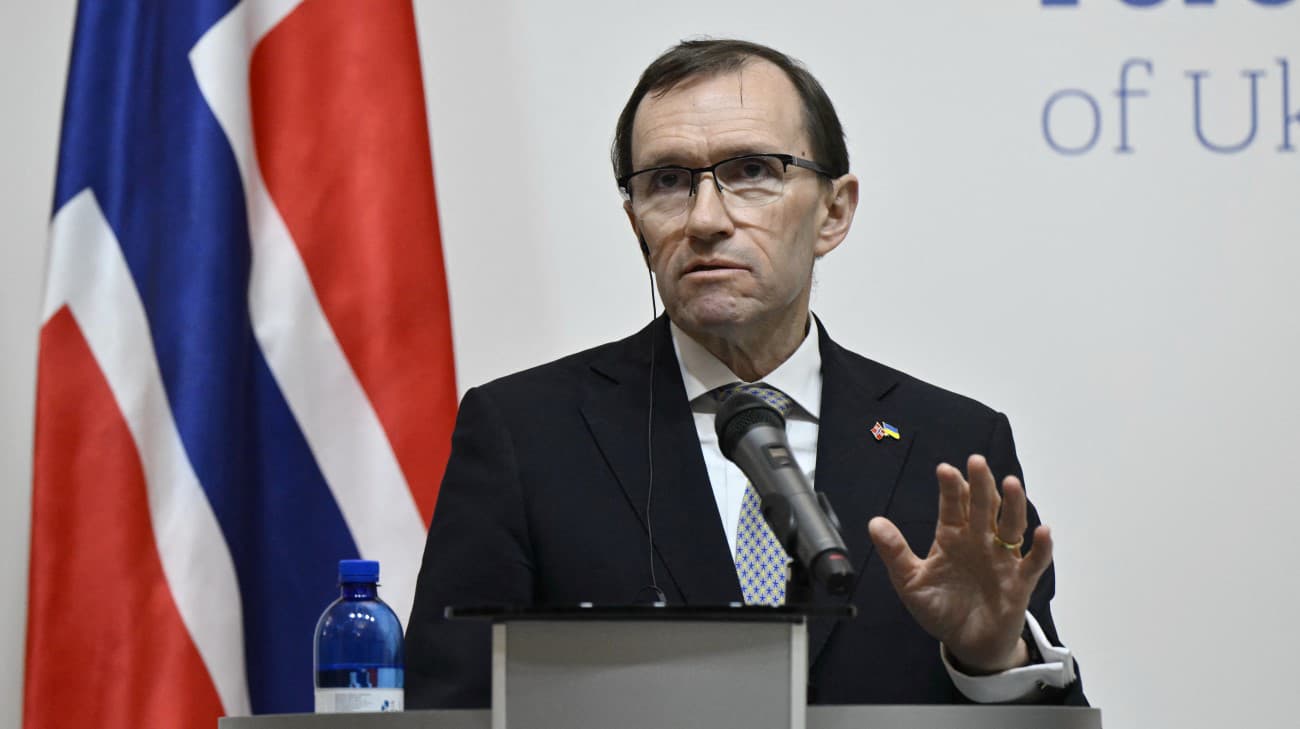Putin falsely claims Belgium exists largely “thanks to Russia”
Russian President Putin falsely claims Belgium owes its statehood to Russia, continuing his pattern of distorting history to emphasize Russia's importance in world events.

Russian President Vladimir Putin, known for his distorted historical narratives, has made another false claim: that Belgium owes its existence as an independent state largely to Russia, not providing any alleged details on how Russia supposedly contributed to Belgium’s independence.
“Belgium, as you probably know, owes its presence on the world map largely to Russia,” Putin claimed, addressing the participants of the so-called World Youth Festival in Russia’s Krasnodar on 6 March.
Previously, the Russian dictator has consistently offered his skewed perspective on Ukrainian history and Russia’s alleged significance in the world’s history. Notably, during an interview with Tucker Carlson, Putin elaborated on his version of Ukrainian history for approximately 25 minutes. In Putin’s revisionist narrative, Ukraine was “created” by either the Bolsheviks, Lenin, or Stalin, though he has been inconsistent in attributing its creation to a specific figure, according to NV.
How Belgium came to exist
Commenting on Putin’s claim that Belgium emerged as a state thanks to Russia, Politico wrote:
“Unsurprisingly, given Putin’s track record, the truth is almost exactly the reverse,” Politico noted, calling Russia’s president Russian pseudo-historian-in-chief.
Politico notes that in 1830, when Belgium sought independence through a revolution against the Kingdom of the Netherlands, Russia initially sided with the Dutch, intending to dispatch troops to quash the Belgian rebels, as it feared any challenge to Europe’s great monarchies. However, the November Uprising in Poland forced Russian Czar Nicholas I to redirect those troops, many of whom were Polish, to address the situation. After the uprising was suppressed, fleeing Polish officers made their way to Belgium, where they bolstered the nation’s nascent armed forces.
Although Russia eventually recognized Belgian statehood at the London Conference of 1830, where Britain and France were considered the leading powers, the anti-Russian Polish revolutionaries of 1830 deserve more credit for Belgium’s existence than the Russians, Politico says.
MP: Russia crafts myths to claim the world can’t function without it
In his remarks to the Ukrainian Channel 24, Lithuanian MEP Petras Auštrevičius said the Russian leadership is deliberately manipulating the facts and that Putin’s claim about Belgium can be seen as an information attack on the West.
Auštrevičius is convinced that Putin is deliberately manipulating historical facts:
“He is the leader of the country who manipulates facts and shows his incompetence. But it makes sense. He does it on purpose and purposefully,” the Lithuanian MEP said, adding, “This is being done purposefully to create the myth that Russia is behind everything and that the world, especially Europe, cannot exist without it.”
On 4 March, Ukraine’s Prime Minister Denys Schmyhal announced that Belgium was ready to use 1.7 billion euros in profit from frozen Russian assets to finance Ukraine’s defense needs.
MEP Auštrevičius views Putin’s statement as a form of intimidation, suggesting that it was made in response to Belgium’s intention to transfer Russian assets to Ukraine.
Politico also believes that Putin’s remarks about Belgium may be no coincidence, as the Russian dictator has a reason for irritation: the West is engaged in intense discussions about utilizing Russian assets to support Ukraine in its war against Russia, while a substantial portion of these assets is held in Belgium, specifically in the Euroclear security depository.
Ukraine’s ally
Belgium consistently supports Ukraine in its struggle against Russian aggression. The country established a new Ukraine Fund, totaling €1.7 billion, allocated for military equipment, humanitarian aid, and the reconstruction of Ukraine’s hardest-hit regions, with €1.5 billion planned for 2024 and €255 million for 2025.
According to official data, Belgium has allocated significant funds for Ukraine’s reconstruction and resilience, including €150 million for energy-efficient rebuilding in the Chernihiv region, €10 million for local economic support, €15 million for humanitarian aid, and €10 million for the World Bank’s SPURR facility. Additionally, as part of the F-16 coalition, Belgium will train Ukrainian pilots and technicians, and has committed a total of €962.01 million in military and humanitarian aid, with plans to provide €1.7 billion in support from 2024 to 2025.
Last September, Belgian PM Alexander De Croo said Belgium would invest €1.7 billion in Ukraine in 2024, sourced from tax revenue generated from frozen Russian assets, as EU and G7 discuss a broader windfall levy on profits from these sanctioned assets.
In early January, Belgium announced plans to deploy two F-16 fighter jets and approximately 50 personnel to Denmark from March to September 2024 to train Ukrainian pilots, according to media reports. This initiative is part of the F-16 coalition, which includes 13 countries, with Belgium, Denmark, the Netherlands, and the US leading the effort.
In January, Ukraine’s Defense Minister Rustem Umerov said Belgium pledged €611 million in military aid for Ukraine this year, and also undertook a long-term pledge to keep supporting the modernization efforts of Ukraine’s defense forces in their fight against Russia’s invasion.
On 28 February, Belgian PM De Croo said his country would allocate €200 million ($216 million) to the Czech initiative to purchase about 800,000 artillery shells for Ukraine outside the EU.
Read also:
- Belgium to fund $ 216 mn for Czech initiative to transfer 800K shells to Ukraine
- Belgium to send F-16 jets to Denmark for Ukrainian pilots training
- Ukrainian Defense Minister: Ukraine to receive €611 million in Belgian military aid
- Belgium commits €1.7 billion for Ukrainian aid from taxed frozen Russian assets


